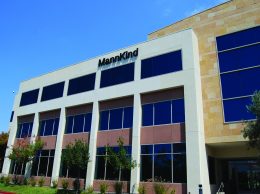$243M merger comes with fine, branch closures
IN THIS ARTICLE
- Banking & Finance Topic
- Marlize van Romburgh Author
By Marlize van Romburgh Friday, June 7th, 2013
PacWest Bancorp’s contentious acquisition of First California Bank has closed but the dust hasn’t settled yet on the $243 million merger.
As the deal was sealed, the banks announced that federal regulators had ordered First California to pay a $600,000 fine and set up $1.1 million in restitution to more than 64,000 consumers who had used its prepaid debit cards. Meanwhile, PacWest prepares to shutter nine branches this month, most likely resulting in dozens of layoffs across its Southern California footprint.
PacWest CEO Matt Wagner did not return several requests for comment. Chief Financial Officer Victor Santoro was not available. A message left for a spokeswoman was also not returned.
PacWest said in a statement that it will integrate First California’s branches into its network over the June 14 weekend. First California Bank has 15 branches, nine of which overlap with existing Pacific Western Bank branches. Seven of the First California branches will be closed and two PacWest branches consolidated on June 21, the bank said.
In a statement sent to bank customers, PacWest said First California’s Ventura branch on Victoria Avenue will be merged into PacWest’s branch on South Mills Road in midtown Ventura.
Its branch on Simi Town Center Way in Simi Valley will be merged into PacWest’s Thousand Oaks branch 11 miles away on North Moorpark Road.
First California branches in Irvine, Glendale, Escondido, Palm Desert and Irwindale are also being closed. In April, PacWest laid off about 50 employees at First California’s headquarters in Westlake Village. PacWest gains a net six new branches with the deal, along with about $1.7 billion in assets, making it a $7 billion-asset bank. Joseph Cohen and Antoinette Hubenette, former directors of First California, have also joined PacWest’s board.
‘Unsound banking practices’
In a settlement agreement released May 31, the FDIC accused First California of engaging in “unsafe or unsound banking practices” related to the marketing and promotion of its prepaid debit card products.
First California moved into the prepaid card business in December 2010, when it purchased the electronic banking division and about $55 million in deposits from Palm Desert National Bank. “We have historically been just involved with deposit accounts,” First California Chief Financial Officer Romolo Santarosa told the Business Times in January 2011. “Recently we’ve been looking at different revenue ideas.”
That new revenue channel came from offering prepaid cards to consumers. Such prepaid cards have become a multibillion-dollar business in the U.S. and are popular primarily among consumers who can’t open traditional checking accounts or don’t have access to credit cards.
Prepaid cards offer the convenience of plastic and a way to deposit money but often come with hefty fees.
According to a statement from the FDIC, First California and its affiliated business, Achieve Financial Services in Austin, Tex., engaged in deceptive practices in the marketing and servicing of the AchieveCard, a prepaid, reloadable MasterCard. The FDIC said that the firms advertised free online bill pay and promoted certain services that were in fact not available to cardholders. The firms also charged cardholders fees that were not clearly disclosed, regulators said.
In its agreement with the FDIC, First California admits to no violations of the law or banking regulations but agrees to pay a $600,000 civil penalty and to set up restitution funds totaling approximately $1.1 million for consumers who used its prepaid debit card products between April 2011 and January 2013. Affected consumers are not required to take any further action and will be sent reimbursements from the banking firms.
FDIC spokesman Andrew Gray told the Business Times the settlement with First California would not impact the PacWest merger. “In fact, we wanted to get it out [on May 31] to avoid confusion,” he said.
However, as the succeeding institution, PacWest is liable for the restitution.
Contentious deal
The merger was fraught from the get-go. In November 2011, PacWest told First California it was interested in buying it for $5.10 a share, a 57 percent premium to the $3.24 share price that day.
The rival banks had both been aggressive acquirers of other institutions since the financial crisis, with First California buying three failed banks in as many years through FDIC-assisted deals.
A few days after receiving the unsolicited offer from PacWest, First California’s board held a special meeting and reviewed the offer with its investment bank, Keefe, Bruyette & Woods, and its law firm. The verdict: Too low. First California sent PacWest a letter telling it so.
Within days, PacWest CEO Wagner contacted the Pohald Group, where brothers Robert, James and William Pohlad controlled about 12 percent of First California’s shares. Wagner told the brothers about his bank’s offer, and the brothers in turn wrote a letter to First California.
After a brief exchange, the Pohlads sent First California a suggestion on Jan. 11, 2012 that they engage in discussions with PacWest. The next day, the family went public with its demands that First California consider a sale, though the offer from PacWest wasn’t disclosed. Later in January, PacWest reiterated its $5.10 offer.
Over the next several months other investors joined the Pohlads in calling for a potential sale, still with no suitor being made public. In May 2012, PacWest sent a revised offer of $7.25 per share in a stock swap, asking for a response within five days and then a 30-day exclusivity period to negotiate terms.
C.G. Kum, First California CEO’s, asked for an extension of the five day term and PacWest’s Wagner declined.
The next day, three members of First California’s board met with board members from a different company — unnamed in securities documents because of a confidentiality agreement — to discuss a deal. First California told PacWest it didn’t feel it could enter an exclusivity period until it had more information, and then PacWest decided to go public with its offer.
The spurned offer from PacWest exploded into public view. Over the next several months, First California met with a number of companies about a potential deal, including one private bank that made an offer that valued First California at $8.50 a share.
In the end, First California officials decided that there was too much risk involved in executing a deal with a private bank and instead agreed to an all-stock deal with PacWest. The banks received final regulatory approval last month to close the merger.
First California’s top brass receive multimillion-dollar golden parachutes if they leave the firm. First California CEO Kum — who has been credited with growing the bank from two branches and $100 million in total assets to 19 branches and $1.8 billion in total assets — would get a $4.8 million package.
Santarosa, its CFO, would get $2.3 million, according to company filings before the deal. William Schack, Bradley Brown and Gilbert Dalmau would get a combined $2.5 million.
[wikichart align=”center” ticker=”PACW” showannotations=”true” livequote=”true” rollingdate=”6 months” width=”390″ height=”245″]











